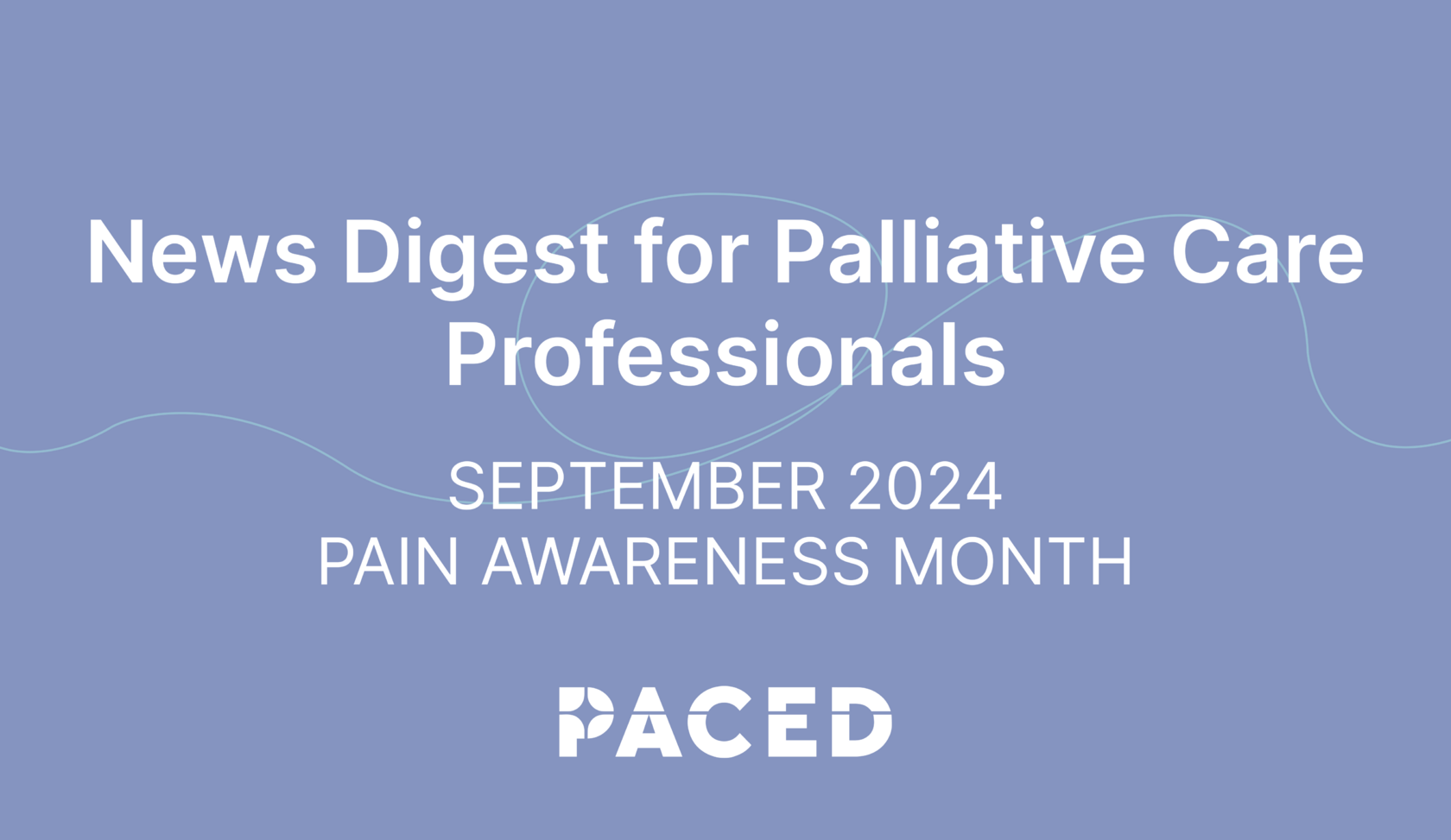The Russian version of the Digest is available via the link
Explore new in palliative care – we are pleased to present a fresh selection of articles and research papers. This September, in support of Pain Awareness Month, a global campaign promoted by the International Association for the Study of Pain (IASP), we have selected articles related to pain management. If you would like to explore any of the topics below in the form of a discussion or webinar, please, feel free to contact us at info@paced.org.uk.
Pittsburgh Scientists Conduct Clinical Trials of a Pain Self-Management Programme for HIV-Positive Patients with Chronic Pain
STOMP (Skills to Manage Pain) is a unique approach developed by physician-scientist Jessica Merlin, M.D. from the University of Pittsburgh. 278 participants underwent an intensive 12-week trial of individual and group sessions. At one-on-one meetings, participants learned to manage pain through thematic discussions (e.g., physical activity, weight loss, relaxation, etc.). At the same time, group sessions aimed to build a community where participants could share their experiences. The randomised study was conducted on two groups: one with interventions and one without. The study showed promising results, including sustained benefits three months after the programme. Although this approach may not be suitable for all palliative patients, it could be beneficial as an adjunct therapy for younger patients with life-limiting conditions.
Link
Link
Women Less Likely to Be Prescribed Pain Medications
Women are significantly less likely to be prescribed pain medications (both opioid and non-opioid), wait an average of 30 minutes longer for prescriptions compared to men, and are 10% less likely to receive any pain assessment. Prof. Shoham Choshen-Hillel and Mika Guzikevits from the Hebrew University of Jerusalem conducted a study revealing considerable gender bias in the prescription of pain medications by emergency department staff in Israel and the United States, regardless of the age or gender of the healthcare providers. This bias is based on false stereotypes, including the misconception that women tend to exaggerate. This issue is relevant to all medical institutions, including palliative care ones. Such stereotypes lead to suffering, pose risks to patients` health and safety, and result in unnecessary medical costs.
Link
Link
The Most Common Side Effect of Opioids is Constipation
40% to 80% of patients receiving opioid analgesics suffer from severe constipation. In promoting a medication—peripherally acting mu-opioid receptor antagonist designed to counteract this side effect—Salix Pharmaceuticals held a panel discussion on addressing opioid-induced constipation (OIC). According to a 2014 study, 37% of patients never discuss this symptom with their doctors, and 35% of doctors are unaware of this side effect in their patients. Therefore, it is crucial to raise awareness about OIC among palliative care professionals, especially those prescribing opioids. Patients may feel embarrassed to discuss such sensitive issues, so medical staff needs to initiate these conversations.Since the widespread adoption of social media in modern society, there has been a growing willingness and need for people to openly discuss terminal illnesses, dying, and grieving. The proliferation of professional and personal microblogs is beginning to impact the lives of palliative care workers and their patients.
Link
Link
Non-Pharmacological Interventions Feasible in the Nursing Scope of Practice for Pain Relief in Palliative Care Patients
A systematic review of 2,385 studies focused on non-pharmacological pain management methods for palliative care patients in nursing practice. Such an extensive analysis requires careful consideration, but preliminary findings indicate that massage and virtual reality (VR) have the strongest evidence for pain reduction. Art therapy shows potential but needs further research. Techniques such as mindful breathing, hypnosis, and music therapy also hold promise, though more detailed studies are necessary. Implementing and integrating these therapies into nursing practice could significantly improve patients' life quality .
Link
Link
How to Manage Pain in Cancer Patients with a History of Substance Abuse?
The mission of the new palliative care clinic at Ohio State University-James Comprehensive Cancer Center in Columbus, Ohio, is to reduce harm and optimise the recovery of palliative care patients. Specialists from the Harm Reduction and Resiliency Clinic conducted a study on how to provide high-quality palliative care, particularly pain management, for cancer patients with a history of substance abuse. The article discusses specific methods and practices that may benefit not only those directly involved with such patients but also other palliative care professionals, as the study emphasises a multidisciplinary approach.
Link
Link
